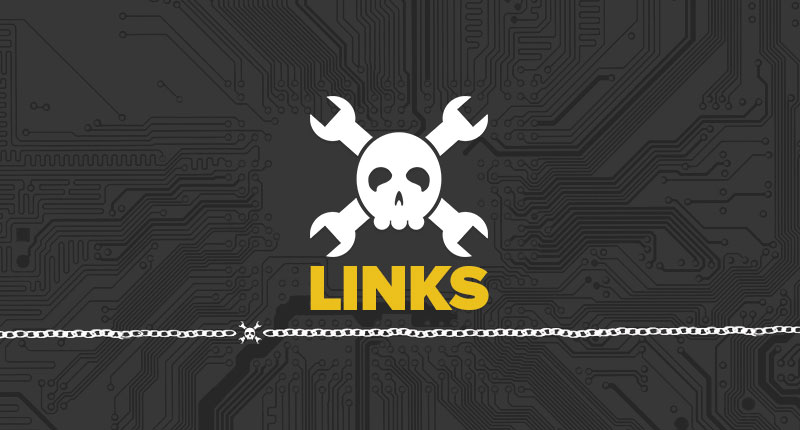Modern video games are almost always written on the backs of a game engine platform, and the two most popular are definitely Unreal Engine and Unity. Some bean counter at Unity decided they essentially wanted a bigger piece of the pie and rolled out new terms of use that would have game development houses paying per Unity install. This was a horrible blow to small indie game development houses, where the fees would end up eating up something like 15% of revenue in an industry that’s already squeezed between the Apple Store and Steam. It caused an absolutely gigantic uproar in the game dev community, and now Unity is walking it back.
We noticed the change first because tons of “migrate from Unity to Godot” tutorials popped up in our YouTube stream. Godot is a free and open-source game engine, and while we’re no game devs, it looks to be at about the level of Blender five years ago – not quite as easy to use or polished as its closed-source equivalents, but just about poised to make the transition to full usability. While we’re sure Unreal Engine is happy enough to see Unity kick some more business their way, we’re crossing our fingers for the open-source underdog.
Amazon’s Kindle Direct Publishing allows independent authors to self-publish. And it’s apparently been awash in prose written by large language models. While it was fun for a while to look through self-published books for the shibboleth phrase “As an AI language model,” Amazon caught on pretty quickly. Of course, that only gets the lowest-hanging fruit. Books like the AI-written guidebook to mushrooms that recommends eating the Death Cap still manage to sneak through, as we mentioned two weeks ago.
Amazon’s solution? Limiting self-published books to three per day. I wrote a book once, and it took me the better part of a year, and Amazon is letting through three per day. If this limit is going to help limit the size of the problem, then we vastly underestimate the problem.
And it’s good news, bad news from space. The good news is that NASA’s OSIRIS-REx mission to return a sample from the asteroid Bennu successfully landed just a few hours ago. As we write this, they’ve sent a team driving around the Utah desert to pick up the capsule. The effort reminds us of retrieving high-altitude balloon capsules after a flight: you know roughly where it is, but you still have to get out there to fetch it. Only NASA has a helicopter to go out looking for the capsule and a lot more science to do before they can throw it in the back of their car.
On the bad news side, India’s Vikram and Pragyan lunar lander/rover pair wasn’t really expected to make it through the long lunar night and had successfully executed all of its planned mission goals before going into deep sleep mode two weeks ago. But you’ve got to try to wake it up anyway, right? Well, the sun came up on Vikram on Friday, and the Indian space agency tweeted a stoic, “Efforts have been made to establish communication with the Vikram lander and Pragyan rover to ascertain their wake-up condition. As of now, no signals have been received from them. Efforts to establish contact will continue.” We’ve still got our fingers crossed, but at this point it would just be extra icing on the cake.
















Their pricing is suppose to be a symptom of a bigger problem.
https://midiaresearch.com/blog/unitys-pricing-is-a-symptom-not-the-cause-of-tougher-times-ahead-for-the-games-industry
This is missing the key elements that developers were upset about. Sure, charging any amount of money would have ruffled some feathers, but not to the degree that it did.
They proposed a flat fee *per install*. Not per sale, being determined by Unity. No information about if the game is donated, pirated, or installed multiple times per purchase. When pressured, they glibly said you could petition them if you thought there was fraud, but no information about how that would work. They said they didn’t intend to charge for the same person installing multiple times, but deflected saying the way they would determine it was proprietary. This leaves only spyware, which likely would have violated a number of privacy laws enacted in the last decade. It also made it impossible to know how much would be due each month.
They also quietly changed their terms of service months ago to be able to make this change retroactive, even if the game never was opened in the versions of Unity this was created for.
They also removed one of the tiers for using the software, making it harder for anyone but big studios to gain the potentially better terms of their new fees.
Then they told people that if they switched to their ad service provider they would waive the fees altogether, also legally dubious.
Overall they have shown they aren’t against changing the terms whenever it pleases them without care or consideration. They’ve broken the trust of the developers, and not done much to even try to win it back.
There’s supposition that the whole thing was a door in the face move to get people to accept the terms they really wanted, but they’ve done so much damage to themselves compared to if they had just announced terms like Unreal’s starting next year for products made with the newest version and later
Tell me you don’t know anything about game development economics and complexity, without telling me you don’t know anything about it.